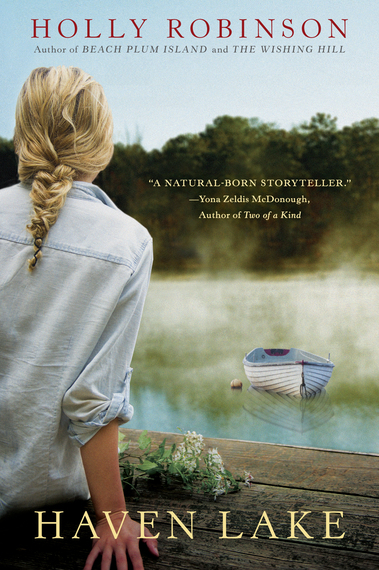I published my newest novel, Haven Lake, in April, and I have another book scheduled for publication in October. Yesterday, I started a new manuscript -- my fifth book under contract with NAL/Penguin Random House.
I have experienced more success as a novelist than I ever imagined. So why is writing every new book harder than it was to write the one before? And how do I keep going despite my fears?
I thought things would get easier after experiencing the cycle of traditional publishing: write a synopsis, get an offer through my agent, receive an advance, deliver a manuscript, work on revisions with an editor, set up events with a publicist, do social media until my head spins.
When I published my first book, I had become accustomed to failure. I wrote many unpublished novels for over two decades before selling the first, so any tidbit of success had me texting my husband to see when he could come home and share a bottle of wine to celebrate. We even celebrated the "nice" rejections from editors in the beginning, because I was "getting closer."
Now I'm here, on the other side of the divide between published and not. My books have all sold out their (admittedly modest) advances. The reviews have been largely positive. I enjoy doing book signings and events, large and small.
At the same time, I am constantly plagued by doubt.
I'm not alone in that. At a lecture I attended recently by Wally Lamb, he talked about how difficult it was to write the next novel after Oprah shoved him into the spotlight by choosing his novel, She's Come Undone, for her book club. Elizabeth Gilbert garnered over nine million views for her TED talk, "Your Elusive Creative Genius," where she admitted that she was afraid to write after the wild success of her memoir, Eat, Pray, Love.
I don't have nearly as many readers to potentially disappoint as Lamb and Gilbert have, of course, but I worry about disappointing them all the same. I recently attended a book club, for instance, where the members had read one of my books and loved it, but were lukewarm about another of my novels, which they'd read the year before. And I know too well, from the experiences of several fellow authors, that the publisher might drop me tomorrow if my current novel doesn't earn out, no matter how successful my previous books may have been.
So I am afraid every day that I write. I fear writing a book that isn't as appealing to readers as the one before; getting too small an advance for publicists to bother with me; or, alternatively, I am afraid that I'll receive an advance too large for me to earn out. I shudder when I see bad reviews and struggle not to compare my Amazon rank with the ranks of other authors.
With each new book, I fear that the plot won't come together as tidily as it seemed in the synopsis, and that the characters will all sound the same. I worry that the setting won't be as gripping as the setting in the last book, that my imagery won't sing on the page and that I'll err on the side of too many flashbacks and cause readers to click on the next download on their e-readers.
The only thing that keeps me going is this: I write because writing is the thing I love to do. My passion to tell stories compels me to create characters whose voices eventually take over their narratives. That's when I know that the writing is true and good, whether readers find the book and love it or not.
Educator and author William W. Purkey urged us to "Dance like nobody's watching; love like you've never been hurt." I'd like to add more to that for anybody out there who is struggling to put words on the page: "Write your story for yourself alone; pour your heart out on the page."

